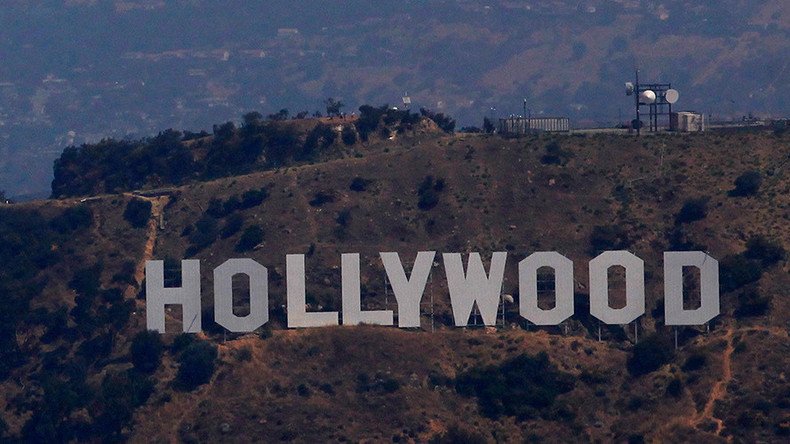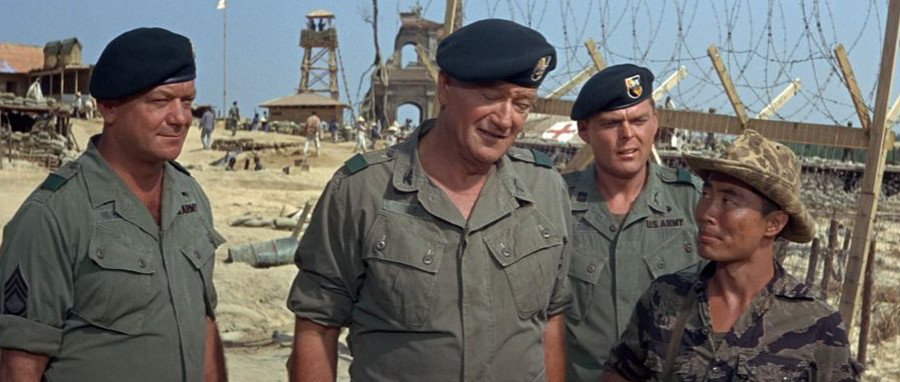'Mr. Kerry goes to Hollywood to discuss ISIS and America's image abroad'

It is exceedingly effective to incorporate a message or a meme into popular entertainment in order to create, especially among young people, an idea of how they are to think and view the world, says legal and political analyst Lionel.
US Secretary of State John Kerry had a meeting with Hollywood studio executives in Los Angeles on Tuesday to discuss various topics including Islamic State (IS, formerly ISIS/ISIL). They also discussed America's image around the world.
RT: What was the aim of the meeting between Secretary of State John Kerry and the Hollywood studio chiefs?
Lionel: Ostensibly, the purpose was to meet with Hollywood movie producers and the like to engage in a discussion, a conversation with how best to explain, portray that which is ISIS - never really explaining why we are utilizing Hollywood, the motion picture and film industry to help explain an international terrorist cancer. But ostensibly it was to help better… portray that of this nefarious group named ISIS or Daesh.
Great convo w studio execs in LA. Good to hear their perspectives & ideas of how to counter #Daesh narrative. pic.twitter.com/AGhesmg1zK
— John Kerry (@JohnKerry) 17 февраля 2016
RT: Isn’t it sheer propaganda? What is your opinion?
Lionel: Absolutely. Is it propaganda? Well, let’s look at the word ‘propaganda’ from the original word, which is from the Vatican, I think it was Pope Gregory, which is ‘to propagate, to promote something.’‘Propaganda’ has a kind of pejorative aspect to it. ‘Propaganda’ means something you don’t agree with. If you agree with it, then it is called truth. ‘Propaganda’ is normally a pejorative meaning something that the other side is using.
Throughout Western history, especially American history, since WWII in particular, we had Frank Capra who produced these incredibly patriotic and lovely tributes to support the American war effort in WWII with ‘Why we fight’. And they were applauded and heralded because we agreed with the message. During the Vietnam era we had movies like “The Green Berets” with John Wayne, not so well-received because the subject matter was not well received. So, number one: is it effective? Absolutely. Wherever you can incorporate a message or a meme into popular entertainment and you create, especially among young people, an idea of how they are to think and view the world, it is exceedingly effective.
RT: To what extent is this type of propaganda effective?
Lionel: All you have to do is go and look on the websites of the FBI and the CIA. And you will see on their websites how people who are thinking of drafting a particular script or movie idea can work in concert with intelligence agencies and domestic police, namely the FBI. Something would tell me that the same theory would apply to the State Department as well.
It was suggested - and there is a wild rumor some say that the moon landing - and I am not subscribing to this at all - but I am saying that the story goes, or the mythology goes, that Stanley Kubrick, this famous producer and director at the time, was enlisted to create the moon landing. Now, that is a popular meme or an idea, and again I am not in any way suggesting that it is true. But, with that somewhat historical suspicion or meme, with other films like Wag the Dog, the idea has always been promoted in popular culture as well, and in the very film industry, that the film industry can affect the way people perceive public policy, war efforts, international positioning and the like. So, of course, it is effective.

RT: In what way could the CIA and other intelligence agencies facilitate the creation of Hollywood productions?
Lionel: Well, what is oftentimes the case… there are some films and television programs and media shows now that are written or directed or the screenplays or teleplays were drafted by people who used to be in the agency. And the idea is that their scripts have to be reviewed to make sure that they are not providing classified information, information that would be deleterious or harmful to the US. So, ostensibly the idea is to make sure nothing is being given away… that could compromise agents or agency function and the like. But, if you look at it this way, it is brilliant. Why wouldn’t any organization from any country say: “Listen, if you are a young filmmaker, how would you like to use an air force base, or a naval base, or these great, cool weapons? If you work with us and we approve your script - you don’t have to, but if you want to - this would make your film even more exiting. And if you put out a good message we would certainly be more willing to be cooperative.” So, it is a mutually advantageous situation; I think it is brilliant. I think every country in the world in some way or another has this. Because if you think about it, when you take the theme of governmental policy and you can merge it with popular culture. For example, in the US, country music has long been connected with the flag, America, Apple pie, American values, Lee Greenwood’s “Proud to be an American”. And if you watch a lot of the Republican candidates right now at events you will hear a country music theme, so, that’s music. In the 1960’s… the counterculture, as it is called, the anti-war effort had the floor and the popular music then was ‘anti-government, anti-war, anti-militarism.’ It is cyclical. But if you go throughout the history of the US there always been a kind of merging of the two. Some call it art, some call it propaganda. Depends on your vantage point.
The statements, views and opinions expressed in this column are solely those of the author and do not necessarily represent those of RT.














